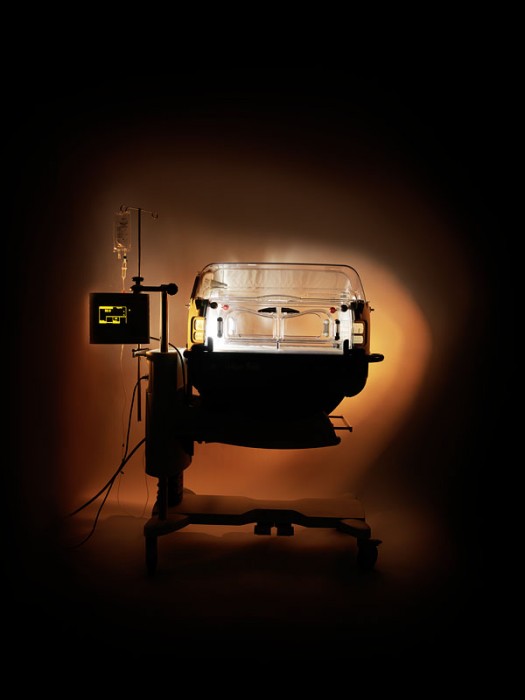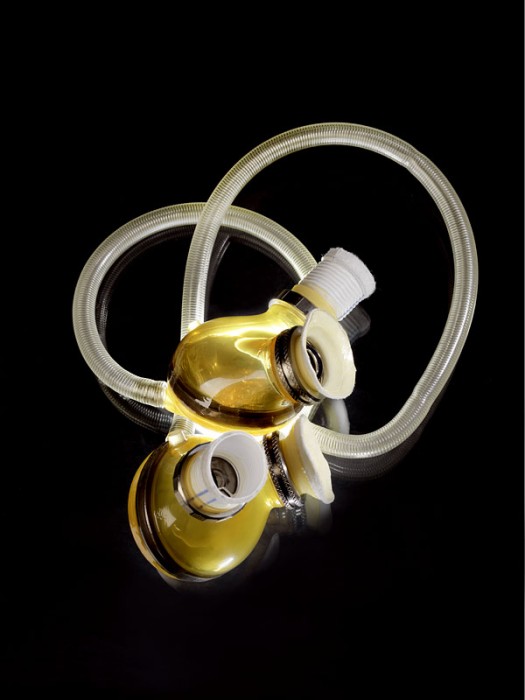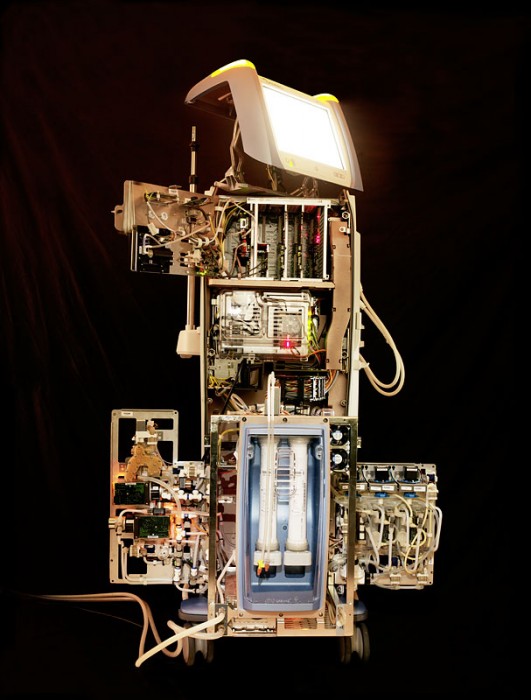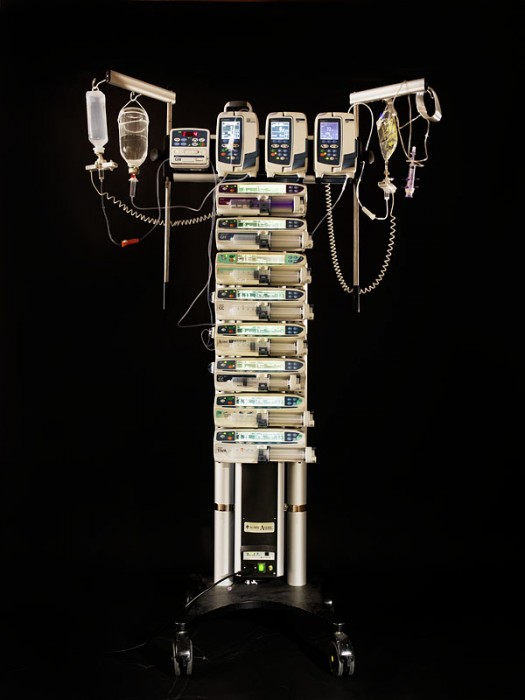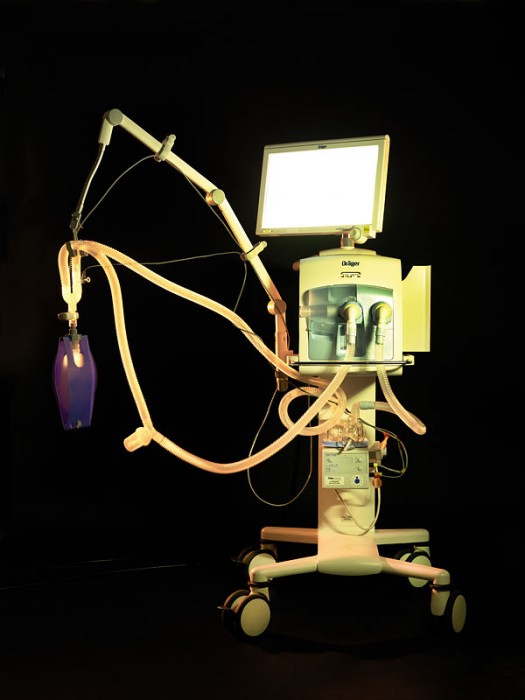The God Machine
-
PhotographerReiner Riedler, Austria
-
Website
This is a project about machines, that can save or prolong our lifes. It´s a story about life and death, maybe more about life. I look at these machines as if they can decide themselves about our future. They are manmade but the have something godlike. When we are in a situation to need their help, they are the only help.
I decided to photograph machines which are normally used at the intense care in hospitals disdanced from their place of use. I didn´t want to make a drama, although these machines are basically connected to dramas. After shooting all these machines, I feel a bit more relaxed now. It helped me to look in the eye of the death to see the beauty of creation.
Normally we are not aware of machines in hospitals. There is a sublime fear of whats associated with places like hospitals. These machines, which keep ourselves alive normally come into our minds, when we have to switch them off, to accept somebodys death.
There are cultures where these machines have to have an implemented random system to be switched off, because it´s not allowed for a doctor to end a life by himself.
For me the machines become sculptures, they start to be human themselves.
Reiner Riedler Biography
Reiner Riedler was born in Austria in 1968.
His first contact with photography came at the age of 12.
He moved to Vienna to study anthropology. Finally he decided to study photography at the ?H?here Graphische Lehr-und Versuchsanstalt? in Vienna.
In recent years he has mainly focused on Documentary Photography and travelled to countries in Eastern Europe, Russia, Africa and India.
His socio- critical position ? sometimes mixed with a dash of irony - is a characteristic of his work.
His pictures have been exhibited and published internationally.
His newest project ?Fake Holidays? will be published as a book in 2009.
Reiner Riedler lives in Vienna/ Austria
Books published:
Gest?rmte Festung Europa by Corinna Milborn/2006, Styria Verlag Wien
Ukraine. Fotografien/ 2003, Edition Fotohof im Otto M?ller Verlag
Albania, Life at the periphery/ 2001, Triton Verlag, Wien
